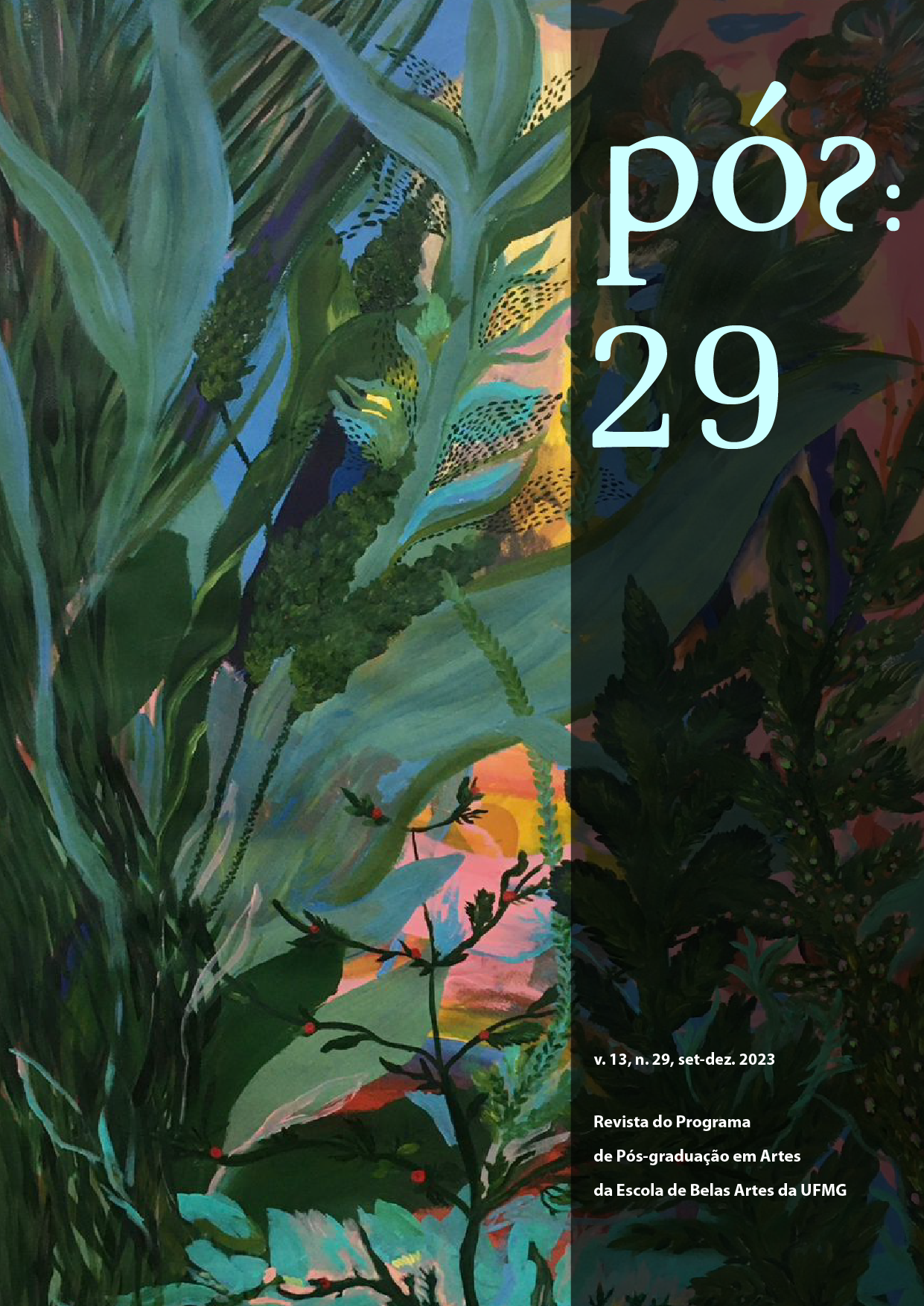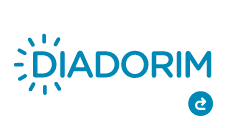The trace as political reinscription in the film Apiyemiyekî?
DOI:
https://doi.org/10.35699/2238-2046.2023.45323Keywords:
Drawing, Trait, Political reinscription, Narrative identityAbstract
In this text, we seek to analyze how Apiyemiyekî? explores the drawing as an imagery testimony of the Waimiri-Atroari people, decimated during the civil-military dictatorship in Brazil. The film, by placing the graphic in the spotlight, achieves a discussion in which the impossibility of narrating and representing trauma intertwines with the disruptive aspect of the trait. The drawings, in addition to revealing another perspective of the facts, expose the absences that approach the narrative identity, reconfiguring the spectator’s historical experience. We understand this filmic construction as a political reinscription capable of elaborating the past from what is missing and what remains of it as a historical trait. For analysis, we will approach the idea of a thought of drawing from the blind spot and the self-portrait, through which it is possible to expose the resistance of the trait and the non-visible of the image.
Downloads
References
APIYEMIYEKÎ? Direção: Ana Vaz. Produção: Olivier Marboeuf, Ana Vaz, Anže Peršin, Annemiek van Gorp, Rene Goossens. Brasil/França: Tenar Projects; Spectre Productions; De Productie, 2020. Disponível em: https://mubi.com/pt/films/apiyemiyeki. Acesso em: 24 out. 2023.
APIYEMIYEKÎ? Conversa com a Diretora: Q&A with Ana Vaz. Entrevistador: Leonardo Camera. [S. l.: s. n.], 2020. 1 video (18 min). Publicado pelo canal FestCurtasBH. Disponível em: https://www.youtube.com/watch?v=6M5lVubrnMw. Acesso em: 24 out. 2023.
BALBINA no País da Impunidade. Direção de Rogelio Casado. [S. l.: s. n.], 1989. 1 video (27 min). Disponível em: https://www.youtube.com/watch?v=2v40-zvNW0k. Acesso em: 24 out. 2023.
COMOLLI, Jean-Louis. Ver e poder: a inocência perdida – cinema, televisão, ficção, documentário. Belo Horizonte: Editora UFMG, 2008.
DA SILVA FILHO, Eduardo Gomes. Egydio Schwade: um intelectual à serviço dos índios. Canoa do Tempo, v. 10, n. 1, p. 176-197, 2018. Disponível em: https://www.periodicos.ufam.edu.br/index.php/Canoa_do_Tempo/article/view/4113. Acesso em: 24 out. 2023.
DA SILVA FILHO, Eduardo Gomes. A escrita Waimiri-Atroari, uma etnografia da etnologia indígena: memórias e a construção social da resistência. Muiraquitã: Revista de Letras e Humanidades, v. 4, n. 1, 2016. Disponível em: https://periodicos.ufac.br/index.php/mui/article/view/730. Acesso em: 24 out. 2023.
DERRIDA, Jacques. Gramatologia. Trad. Miriam Schnaiderman e Renato J. Ribeiro. São Paulo: Perspectiva, 1973.
DERRIDA, Jacques. Mal de arquivo: uma impressão freudiana. Rio de Janeiro: Relume Dumará, 2001.
DERRIDA, Jacques. Memórias de cego: o auto-retrato e outras ruínas. Lisboa: Fundação Calouste Gulbenkian, 2010.
GAGNEBIN, Jeanne Marie. Lembrar escrever esquecer. São Paulo: Editora 34, 2006.
LAGROU, Els. Desenho e pintura corporal. In: LAGROU, Els. Arte indígena no Brasil: agência, alteridade e relação. Belo Horizonte: C/ Arte, 2009. Disponível em: https://edisciplinas.usp.br/pluginfile.php/3762631/mod_resource/content/1/LAGROU%20Cap.%204.pdf. Acesso em: 10 jul. 2023.
MÄHLER-NAKASHIMA. Henry Albert Yukio. Por que kamña matou Kiña? A Retórica Indigenista Estatal, a FUNAI e os Waimiri-Atroari (1967-1988). 2022. 460 p. Tese (Doutorado em História) – Pontifícia Universidade Católica de São Paulo, São Paulo, 2022. Disponível em: https://sapientia.pucsp.br/handle/handle/26096. Acesso em: 24 out. 2023.
MICHAUD, Ginette. “(Sem) desígnio – o desenho”: reler Mémoires d’Aveugle de Jacques Derrida. Revista Filosófica de Coimbra, n. 43, p. 71-122. 2013. Disponível em: https://www.uc.pt/fluc/dfci/public_/publicacoes/sem_designio. Acesso em: 05 jan. 2022.
NASS, Michael. A noite do desenho: fé e saber em Memórias de Cego de Jacques Derrida. Revista Ensaios Filosóficos, Rio de Janeiro, v. XI, p. 9-21, 2015. Disponível em: http://www.ensaiosfilosoficos. com.br/Artigos/Artigo11/MichaelNass.pdf. Acesso em: 15 jan. 2022.
NEVES, Josélia Gome. Cultura escrita em contextos indígenas. 2009. 369 p. Tese (Doutorado em Educação Escolar) – Faculdade de Ciências e Letras de Araraquara, Universidade Estadual Paulista Júlio de Mesquita Filho, São Paulo, 2009. Disponível em: https://repositorio.unesp.br/bitstream/handle/11449/101579/neves_jg_dr_arafcl.pdf?sequence=1&isAllowed=y. Acesso em: 24 out. 2023.
REIS, Wilson C. Braga; SCHWADE, Egydio Paul. 1º Relatório do Comitê Estadual da Verdade: o genocídio do povo Waimiri-Atroari. Manaus: Comitê da Verdade do Amazonas, 2012. 92 p. Disponível em: https://www.gov.br/memoriasreveladas/pt-br/assuntos/comissoes-da-verdade/estaduais/1r_cv_am_waimiri_atroari.pdf. Acesso em: 24 out. 2023.
RICOEUR, Paul. Tempo e narrativa: a configuração do tempo na narrativa de ficção. São Paulo: Martins Fontes. 2010.
RICOEUR, Paul. A história, a memória, o esquecimento. Campinas: Editora da Unicamp, 2007.
Downloads
Published
Issue
Section
License
Copyright (c) 2023 Giulianna Ronna, Cristiane Freitas Gutfreind

This work is licensed under a Creative Commons Attribution-NonCommercial 4.0 International License.
Authors who publish in this journal agree to the following terms:
- Authors retain copyright and grant the journal the right of first publication, with the work simultaneously licensed under the a Creative Commons Attribution-NonCommercial 4.0 International License that permits sharing of the work with acknowledgement of authorship and initial publication in this journal;
- Authors are permitted to enter into additional contracts separately, for non-exclusive distribution of the version of the work published in this journal (e.g., the Creative Commons Attribution License).
- Authors are permitted and encouraged to publish and distribute their work online (e.g., in institutional repositories or on their home page) at any point before or during the editorial process, as this may generate productive changes as well as increase the impact and citation of the published work.
- It is the responsibility of the authors to obtain written permission to use in their articles materials protected by copyright law. Revista PÓS is not responsible for copyright breaches made by its contributors.












